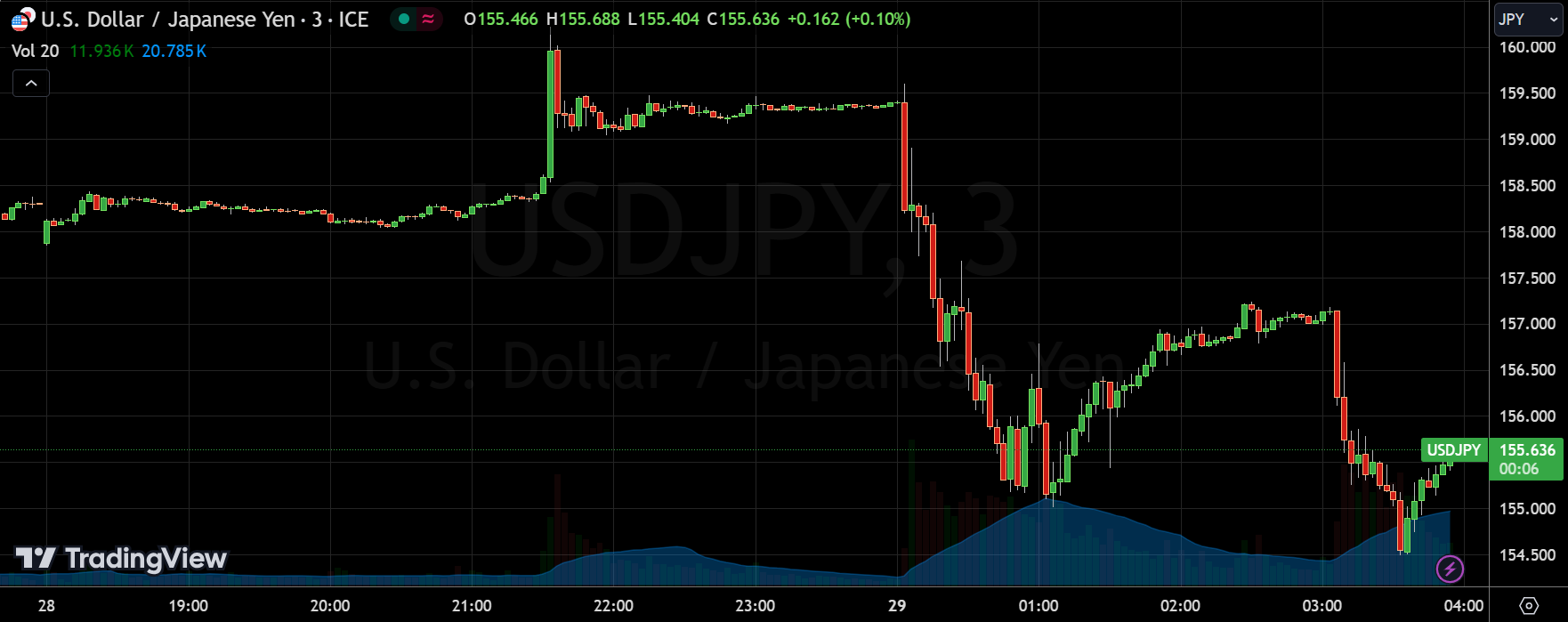As the Japanese yen exchange rate hit 160 in the early morning of April 29, marking a new low not seen in over 34 years, the Bank of Japan may have started to take action. Since April 29 is not a trading day in Japan (Showa Day), trading was relatively thin, resulting in larger intraday volatility. $iShares MSCI Japan ETF(EWJ)$ $Japanese Yen - main 2406(JPYmain)$ $Invesco CurrencyShares Japanese Yen Trust(FXY)$
What are the impacts of the yen's depreciation?
Depreciation Factors
Monetary Policy Unchanged: The Bank of Japan decided at its March meeting to maintain the current bond purchase scale without announcing a reduction in bond purchases. This indicates that its monetary policy stance has not changed, putting pressure on the yen exchange rate.
Inflation Impact: The Bank of Japan believes that the recent depreciation of the yen has a negligible impact on trend inflation. This dovish statement further exacerbated the yen's depreciation.
Economic Outlook: The Bank of Japan revised down its GDP forecast but slightly raised its inflation forecast, reflecting a cautious attitude towards Japan's economic growth.
Global Economic Environment: The rise in international commodity prices and the depreciation of the yen have jointly led to cost-push inflation, which may affect future wage increases and demand-pull inflation.
Outlook
Interest Rate Hikes and Bond Purchase Reduction: It is expected that the Bank of Japan may raise interest rates to 0.50% within 2024 and begin to reduce bond purchases to respond to persistent inflationary pressures.
Terminal Interest Rate Forecast: Japan's terminal interest rate may be between 1.0-1.5%, and there may be multiple interest rate hikes within 2025.
Pros and Cons of Yen Depreciation: Although the depreciation of the yen has a negative impact on Japan's nominal GDP and purchasing power of residents, it is also beneficial for exports and corporate earnings, attracting capital inflows.
Possibility of Foreign Exchange Intervention: Japanese authorities may consider implementing foreign exchange intervention to slow down the pace of yen depreciation. However, there is also a possibility of non-intervention, which will depend on various factors.
What if Non-Intervention?
The foreign exchange intervention by the central bank usually has the characteristics of "short duration and strong implementation." Although it may have a significant impact on the exchange rate in the short term, the intervention itself is difficult to reverse the long-term depreciation trend of the yen. Therefore, the Bank of Japan may be cautious about the effectiveness of intervention.
The Japanese public has a neutral attitude towards exchange rate movements, meaning their reaction to exchange rate changes is relatively calm, and they are not likely to massively shift assets due to yen depreciation. This stability may reduce the urgency for the Bank of Japan to intervene in the exchange rate.
The direction of yen depreciation is mainly determined by the US dollar and the fundamentals of the US economy, while the intervention by the Bank of Japan may have more impact on the rate of yen depreciation rather than the direction.
Investors may predict the intervention behavior of the Bank of Japan and make speculative operations accordingly, such as going long on the yen before the expected intervention and shorting it afterward. If the Ministry of Finance does not want to facilitate the plans of speculative funds, it may choose not to intervene to avoid encouraging market speculation.
From the perspective of international balance of payments, the Bank of Japan may encourage enterprises to repatriate overseas profits to the domestic market in its policies.
Conclusion
The decline in the yen exchange rate is a complex phenomenon influenced by various factors. Although there is a risk of further depreciation in the short term, the current exchange rate level may be beneficial to the Japanese economy as a whole.
The policy direction of the Bank of Japan, changes in the global economic environment, and market adjustments to inflation expectations will all be key factors influencing the future trend of the yen exchange rate.

Comments